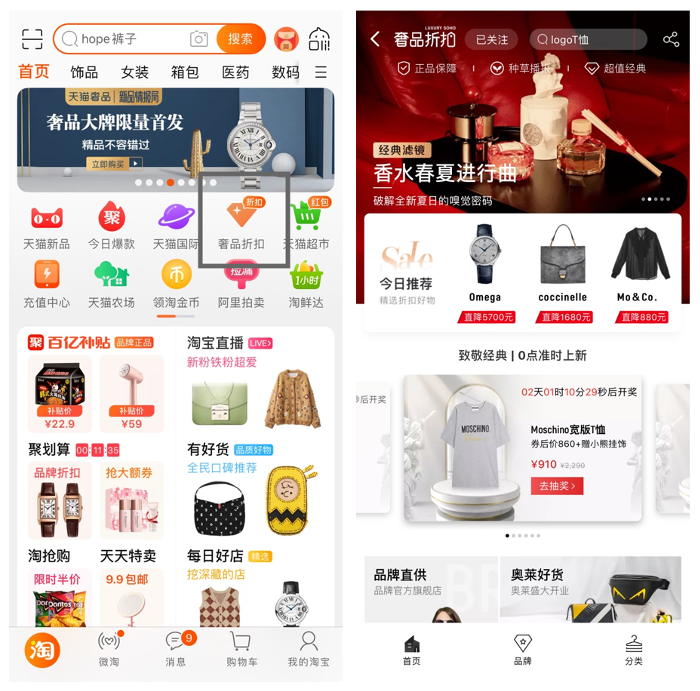Alibaba Luxury Soho aims to help luxury brands lower overstock
Alibaba is dipping its toes into the luxury fashion pond. Not for the first time, but this time it is serious. Luxury Soho is distinctly different from Luxury Pavillon as it is more boutique style and “last season-” / “evergreen products-driven”.

Chinese internet giant Alibaba, launched a new marketplace platform for luxury products, “Luxury Soho”. Named after the cool boutique-style New York neighborhood, the marketplace offers luxury fashion collections from some of the world high-end fashion brands and designers.
Aimed at young shoppers, the platform offers savings on seasonal luxury items. The company sees Luxury Soho as a way to introduce younger consumers to luxury brands through a more accessible price point.

It is not the first time that Alibaba dips its toe into the luxury fashion pond. With Tmall’s Luxury Pavilion, it already runs a high-end online shop.
Yet, Luxury Soho is distinctly different from Luxury Pavillon as it is more boutique style and “last season-” / “evergreen products-driven”.
The launch is perfectly timed to take big brands, who has counted on Chinese tourism to fill their stores in Europe and the United States, some much needed overstock off their hands.
The new Alibaba platform would enable brands to operate their own respective online stores with complete control over the pricing, product strategy and selection.
Chinese tourism is key for luxury products
Chinese customers account for over a third of the global luxury goods expenditure and China is the key marketplace was hit severely by the COVID-19 pandemic, which pushed companies to shut shops and also led to the virtual halt of international traveling.
As the virus reached the United States and Europe, Chinese shoppers gradually emerged from a big lockdown that lasted for weeks, and most of the labels have been observing a recovery in their sales since March.
However, the COVID-19 pandemic has disturbed the warehouse planning and supply chains throughout the world. This disruption has left fashion groups with substantial amounts of unsold goods, while Chinese customers, who mostly used to buy when traveling outside the country, are now shopping from the convenience of their homes.
How Alibaba’s Luxury Soho helps manage inventory
The new service is also “a response to the need in the fashion industry for brands to be able to efficiently manage their inventory and stock – an issue that’s been compounded by the Covid-19 outbreak,” said Tmall’s head of fashion and luxury in Europe Christina Fontana.
“With Luxury Soho, brands can now move select products and collections onto an online outlet store and bring them in front of a specific audience that is waiting to discover new products and brands.”
“Product discovery is not the biggest problem for most Chinese consumers, though. Most Chinese come to mainland Europe with a clear shopping list,” says Remco Livain – CEO of luxury fashion consulting GANDT Ventures from Zurich, Switzerland.
“One of the main challenges is making sure that trusted, high quality product is available for Chinese consumers to buy. Chinese tourist still buy their luxury goods in Europe in fear of counterfeits.”
Alibaba’s marketplace creates trust
Trust is an important aspect of the luxury shopping experience. That is why Alibaba might have done a good job by leaving the inventory management with the brands.
“In the past, luxury brands might have operated multiple stores across China to be able to reach more consumers. But the coronavirus outbreak has exposed some underlying vulnerabilities in this model and accelerated changes in consumer behavior.
“To build resilience and meet consumers where they are at, more luxury brands will think about how to move their in-store experiences online” – Christina Fontana
It is unlikely that luxury brands will (want to) start investing heavily in brick and mortar stores in China, today. The market is still very much dependent on Tourism.
Yet, with the global tourism and travel restrictions faced by all parties involved, new store- and shopping concepts are required. Alibaba has the platform and reach to make a difference. And now, they have added a second luxury shopping product to their portfolio that might be part of the solution.


